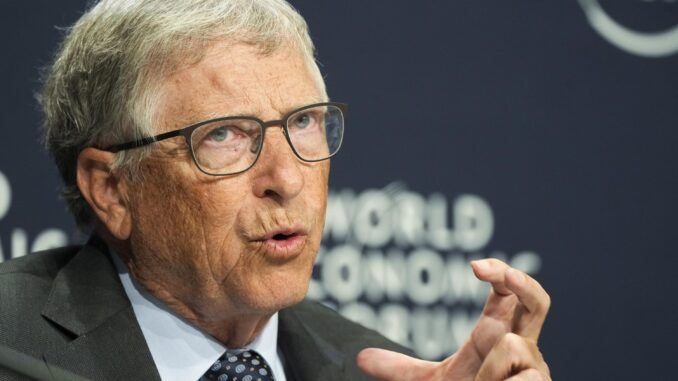
Bill Gates latest claim that technology is the solution to world hunger has been called out by fifty organizations that are dedicated to food sovereignty and food justice issues worldwide.
In an “open letter” published earlier this month, the groups addressed comments made by Gates during interviews with The New York Times and The Associated Press, about The Gates Foundation 2022 Report.
The Defender reports: The letter’s lead authors, Community Alliance for Global Justice/AGRA Watch and the Alliance for Food Sovereignty in Africa, wrote:

BYPASS THE CENSORS
Sign up to get unfiltered news delivered straight to your inbox.
You can unsubscribe any time. By subscribing you agree to our Terms of Use
“In both articles, you make a number of claims that are inaccurate and need to be challenged. Both pieces admit that the world currently produces enough food to adequately feed all the earth’s inhabitants, yet you continue to fundamentally misdiagnose the problem as relating to low productivity; we do not need to increase production as much as to assure more equitable access to food.”
The authors also criticized Gates’ claims that we’ve “underinvested in agricultural innovation” and that the Green Revolution was “one of the greatest things that ever happened.”
Gates told The New York Times:
“Helping farmers has got to be the very top of the climate adaptation agenda. And within that, you have a lot of things like credit for fertilizer, cheap fertilizer, better seeds that we should be very intent on –– funding those things and setting ambitious goals for.”
But the authors of the open letter disagreed:
“There are already many tangible, ongoing proposals and projects that work to boost productivity and food security –– from biofertilizer and biopesticide manufacturing facilities, to agroecological farmer training programs, to experimentation with new water and soil management techniques, low-input farming systems, and pest-deterring plant species.”
They also disagreed with Gates’ claim that the Green Revolution was a “resounding success”:
“While [the Green Revolution] did play some role in increasing the yields of cereal crops in Mexico, India, and elsewhere from the 1940s to the 1960s, it did very little to reduce the number of hungry people in the world or to ensure equitable and sufficient access to food.”
The authors reminded Gates that with the Green Revolution came “a host of other problems, from ecological issues like long-term soil degradation to socio-economic ones like increased inequality and indebtedness (which has been a major contributor to the epidemic of farmer suicides in India).”
They also criticized Gates’ push for genetically modified seeds, stating that “climate-resilient seeds are already in existence and being developed by farmers and traded through informal seed markets.”
“You are part of creating the very problem you name,” the groups wrote. “The AGRA (Alliance for a Green Revolution in Africa) initiative, which your foundation continues to fund, has also pushed restrictive seed legislation that limits and restricts crop innovation to well-resourced labs and companies.”
These initiatives don’t increase widespread innovation, but rather contribute to the privatization and consolidation of corporate monopolies over seed development and seed markets, they said.
The groups challenged Gates to “step back and learn from those on the ground,” and called on the media to consider how they cover Gates and his vision for the future of food.
They wrote, “we invite high profile news outlets to be more cautious about lending credibility to one wealthy white man’s flawed assumptions, hubris, and ignorance, at the expense of people and communities who are living and adapting to these realities as we speak.”


